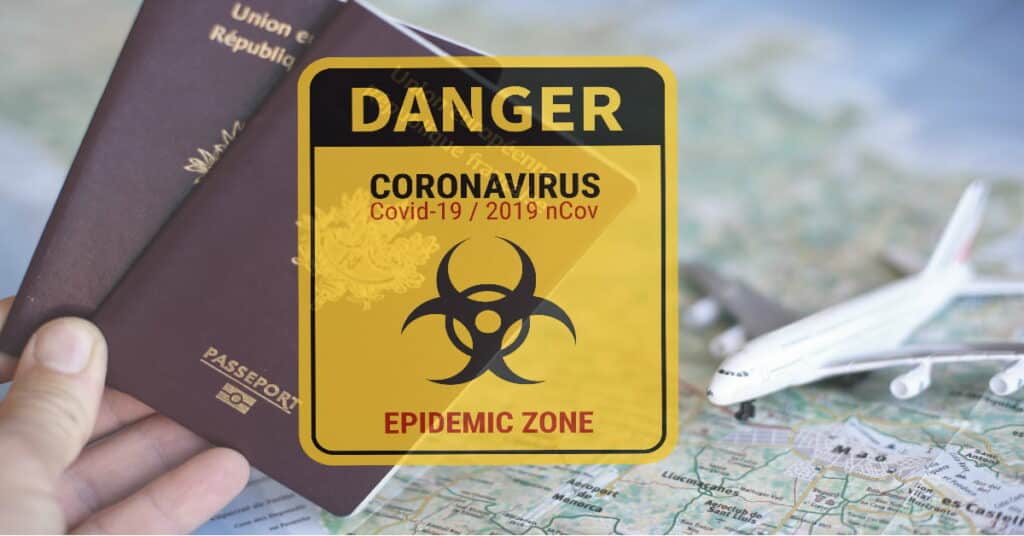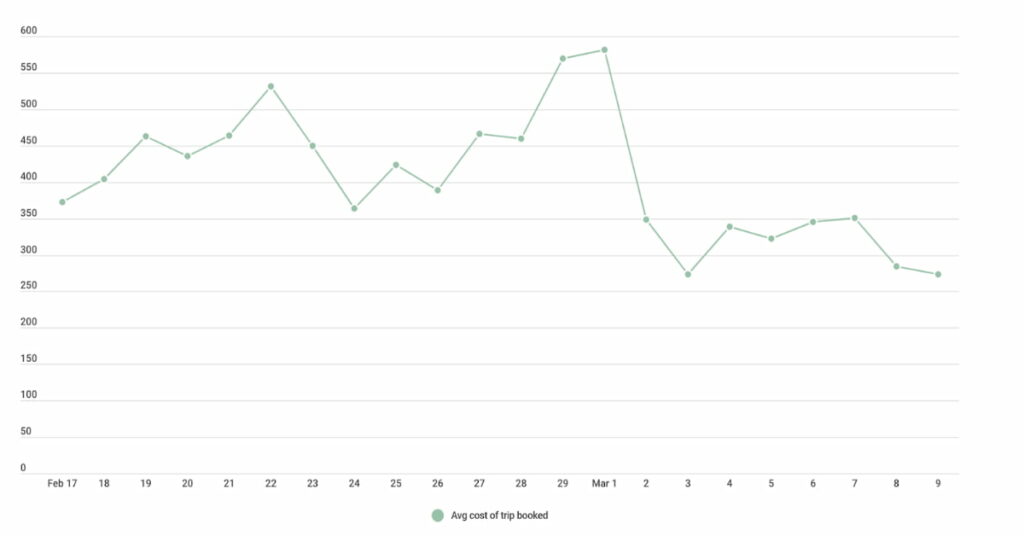As COVID-19 continues its global spread, businesses of all sizes are having to grapple with how they should respond to the disruption it’s caused. For startups, in particular, the competing pressures of concern for staff wellbeing and the need to keep the business growing have left many unsure of the best approach.
Nowhere is this uncertainty more keenly felt than around employees’ business travel. Business leaders are having to wrestle with decisions about whether or not to pause all travel, or to limit this to some destinations, at a time when the information available is always changing.
At TravelPerk, we manage business travel for hundreds of thousands of people, including some of Europe’s fastest-growing startups, and have been keeping a close eye on the effect COVID-19 is having on business trips.
After reviewing our own data, globally we have seen a drop in bookings of around 50%. In Japan, South Korea, Hong Kong and China, more than 98% of the bookings we’d usually expect to see have disappeared. That’s not surprising since they are the countries who have suffered most and their neighbours.
What’s changed in the past few weeks though is that the top 10 worst affected destinations also includes markets closer to home. Italy is the worst affected country in Europe, with an 84% fall in bookings – higher than Singapore. What’s perhaps more surprising is that Belgium, the Netherlands and the UK are next, with a 68%, 64% and 56% drop in bookings respectively.
At the moment, there’s no evidence in our data that a recovery is around the corner. And with the recent quarantine action taken by the Italian government, and expectations that the UK government will imminently move into its “delay” phase, it’s looking like businesses will continue to limit travel for at least the next few weeks.
Ultimately, international business is still powered by face-to-face meetings, and many startups depend on their workforce being able to travel in order to operate. So, what can founders do now to protect and prepare their employees and organisations, and minimise disruption?
First of all, startups need a defined, agreed and clearly communicated action plan. This will help stop misinformation and rumour from spreading and reassure staff that contingencies are in place. There are a few things that should be included:

Prioritise traveller safety
The safety and well-being of travellers is paramount. That means setting alerts for news coming out of local government offices tasked with responding to COVID19 and syncing your official advice to employees with theirs. If the government advice is not to travel, as is the case right now with Italy, then it goes without saying that you and your team should cancel any trips.

Implement a duty of care policy
Now is the time, if not already implemented, for a startup to put a duty of care policy in place for any problems with team members stuck abroad. Providers like ISOS provide not just tracking, alerts, 24-7 support, and reporting, but repatriation services as well. Having an employee stuck overseas is a situation that often requires specific skills and knowledge, and is not something you can handle yourself. Don’t leave getting covered until it’s too late.

Have the right remote-working tools in place
Having great video conferencing software is vital, especially in times like these. If there are any doubts about the need to meet face-to-face, use a video call. Founders should invest in acquiring a corporate account, not a free one, to give their team the best possible experience, empowering and enabling them to get their work done from wherever they’re comfortable.

Consider company-wide booking restrictions
Sometimes just putting out blanket messages is not enough, especially if you have remote teams based across different time zones who might miss an email. To combat this, building restrictions into a booking process takes the decision out of staff’s hands. At TravelPerk, we’ve not only disabled booking travel to the worst-hit destinations, we also now require every trip abroad to be peer-approved, even for c-suite level execs.
Taking these steps is a simple way for startups to start mitigating the ongoing uncertainty around COVID-19. Even some large, established corporates are in unchartered waters right now, but for startups, having a plan in place means you can easily prioritise your employees’ wellbeing whilst continuing to grow and operate.
Once this is done, as crazy as it sounds, there is an opportunity to start thinking about booking future business travel. In 6 months, we could well be back to normal, and the world will have an even stronger appetite for your business. Travel prices right now are at the lowest they’ve ever been (see below) so if you have a conference in October, or a team building event pencilled in for the end of the year, now could be the time to book it. When doing so, also check out the tools that are available to give you flexibility and reassurance if you do need to cancel – we’re seeing a lot of demand for this from our customers.

Guest post by JC Taunay-Bucalo, Chief Commercial Officer for TravelPerk
Main image picture credits: Oleksii Synelnykov/Shutterstock
Stay tuned to Silicon Canals for more European technology news










01
These are the top UK-based PR agencies for startups and scale-ups in 2025